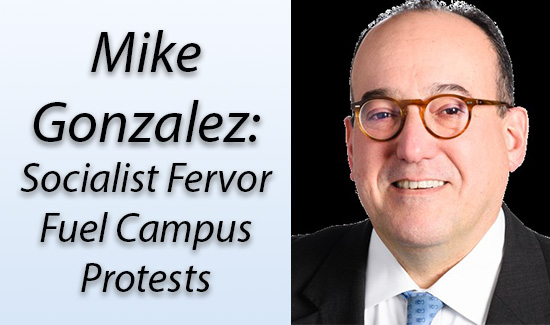‘Magic Moment’ for Education Freedom
![]()
We are witnessing a magic moment for education freedom across the United States — really a complete reimagining of K-12 education in America. For decades, we have unfortunately used a “one-size-fits-all” model that assigns students to a public school based on nothing more than a zip code. The result is that many students get trapped in a public school that simply is not the best for them. Today, a growing number of states have greatly expanded the options available to families when it comes to their student’s education. This includes breaking down regulatory barriers to homeschooling, permitting micro schooling, authorizing more charter schools, and modifying state law so that education dollars follow students, not systems, in the form of education savings account (ESA) programs. Despite the best efforts of the big government education bureaucracy and the special interests, like the teachers unions looking to protect their turf, real choice and education freedom is on the march in the states.
These state ESA educational freedom programs give families maximum flexibility with their children’s education by allowing state education dollars to flow into a controlled account where spending is directed by the parent – as it should be. Authorized expenses that can be paid for out of an ESA include school uniforms, standardized testing fees, private school tuition, books, supplies, and, in some cases, even transportation to and from school. The fundamental idea behind ESAs is that parents know their children far better than any government agent. ESAs break down our existing “one-size-fits-all” model of education by allowing for parents to account for their student’s individual and unique needs. While many parents may decide that their local public school is the best option for their student, and therefore opt not to use the ESA, many others will find that these choice programs make education freedom a reality for them. This is likely why a staggering 76% of Americans support ESAs in a recent poll.
The current revolution in education traces back to West Virginia in 2021, when the state, led by Senator Patricia Rucker, a member of the ALEC Board of Directors, created a new ESA program called the Hope Scholarship Program. While a few states had ESAs prior to this, including Arizona, North Carolina, Mississippi, Florida, and Tennessee, they were all very limited in terms of student eligibility and funding. What makes the Hope Scholarship Program different is that it makes 93% of the state’s students eligible to participate and allows 100% of state education dollars to follow that student to the school deemed best by the parents of the children. Already, 3,800 families have applied to participate in this program.
Not to be outdone, Arizona one-upped West Virginia in 2022 by expanding their existing ESA program to include every single student in the state, making Arizona the first state in the country with a 100 percent universal ESA program. The expansion has already proven to be a massive success with over 50,000 students applying to participate. In addition, New Hampshire, Missouri, Kentucky, and Indiana created new ESA programs, with some eligibility restrictions, in 2022 to bring the total number of ESA states to 10.
The popularity of these programs has only caused momentum for education freedom to accelerate in 2023. Thanks to the leadership of state policymakers Iowa, Florida, Utah, and Arkansas have all passed universal ESAs into law this year. In addition, North Carolina’s legislature is closing in on passing a bill to create a universal ESA program and South Carolina just passed a limited-eligibility ESA. In total, 14 states now have ESA programs and 7 of those are universal.
Before the pandemic, just 320,000 (0.5%) of our nation’s students had the option of utilizing an ESA program. Today, that number stands at just over 7,500,000 (14.1%). States are not just passing new programs in support of education freedom, but they are passing new programs that every student and family can access without restriction. With national test scores plummeting and only one third of Americans saying K-12 education is on the right track, there has never been a more important time for states to reimagine what the future of quality, inclusive education looks like. Fortunately for residents of states like West Virginia, Arizona, Iowa, Utah, Arkansas, South Carolina, Florida, and more, the post pandemic years have indeed been a magic moment for education freedom that empowers families across the United States.






